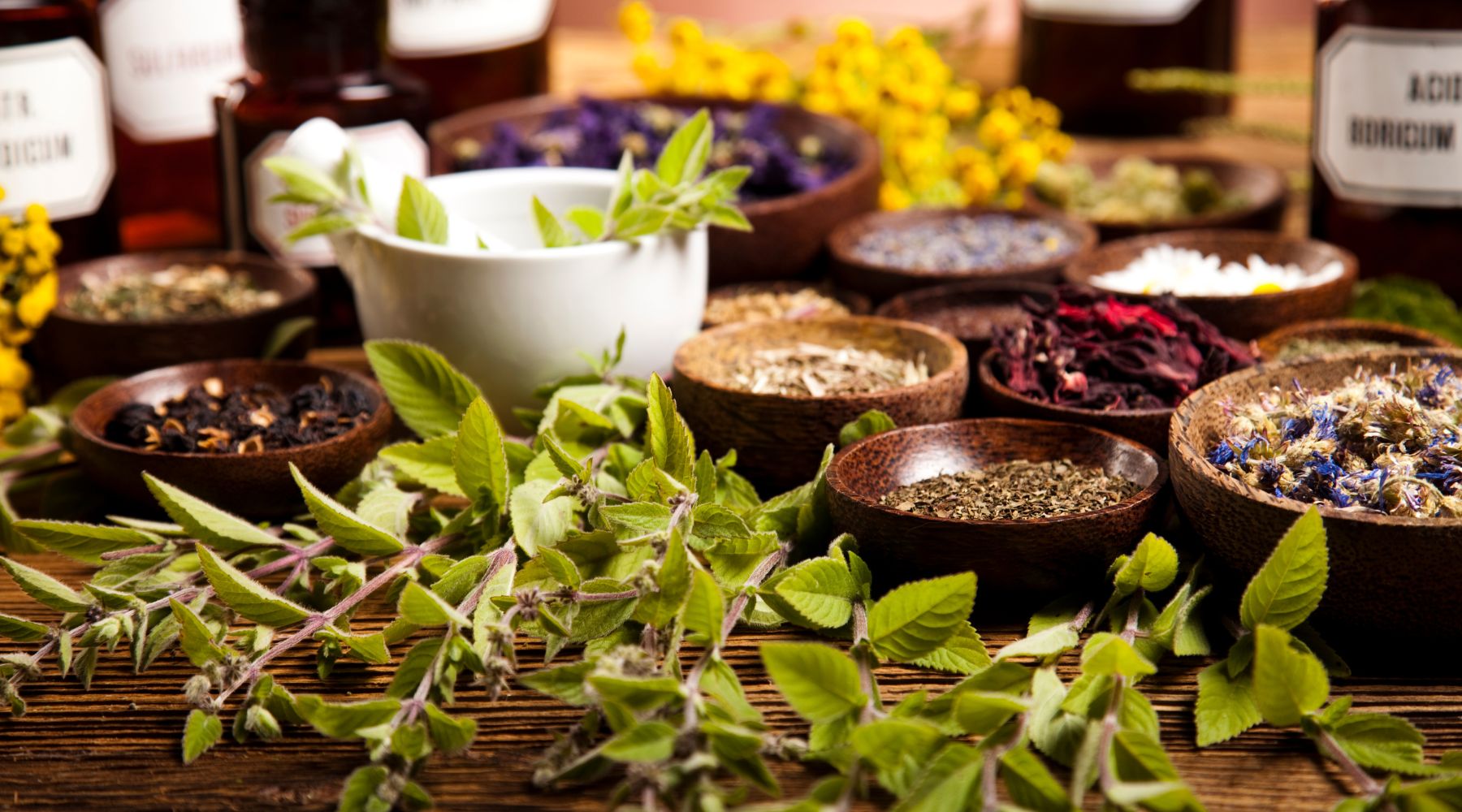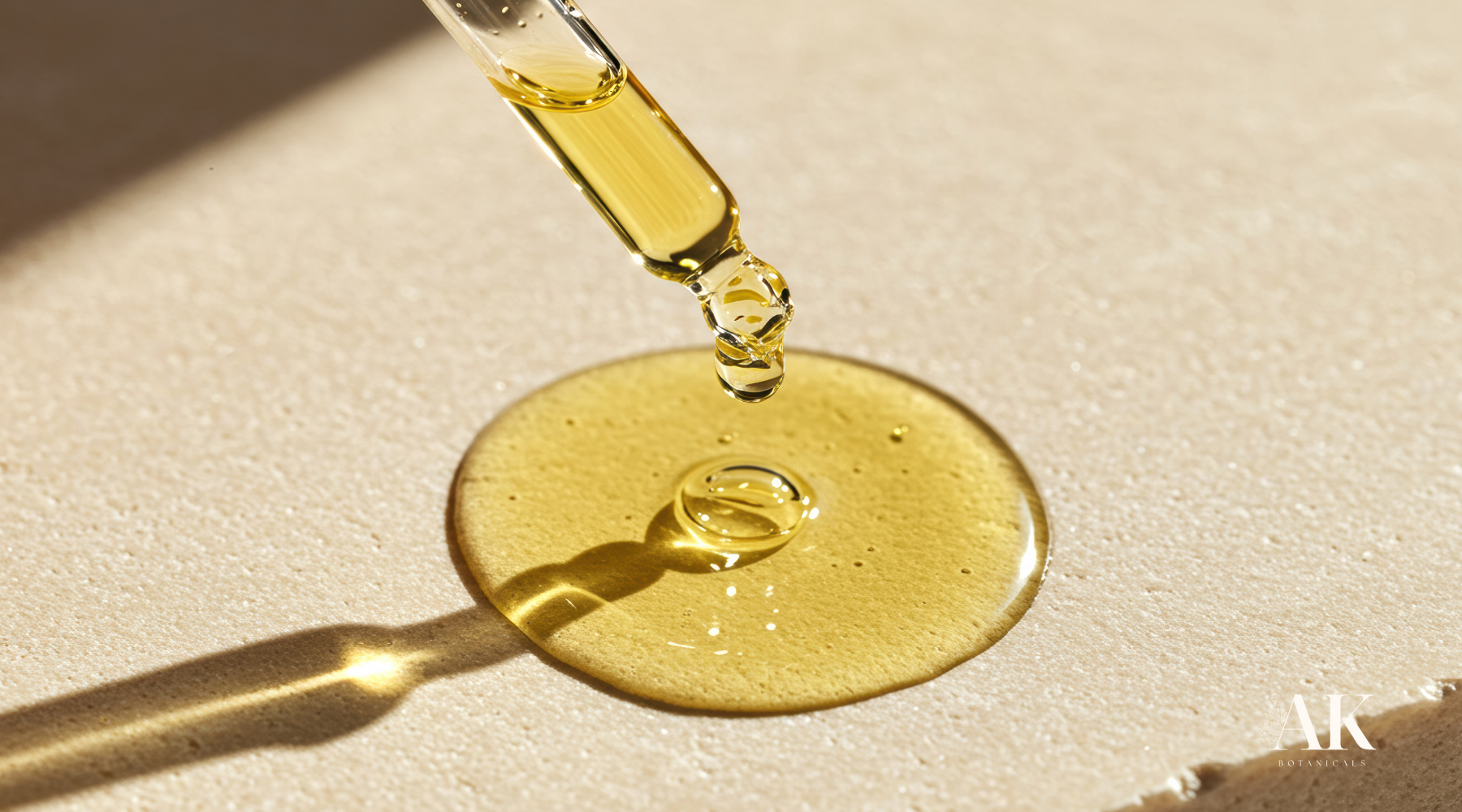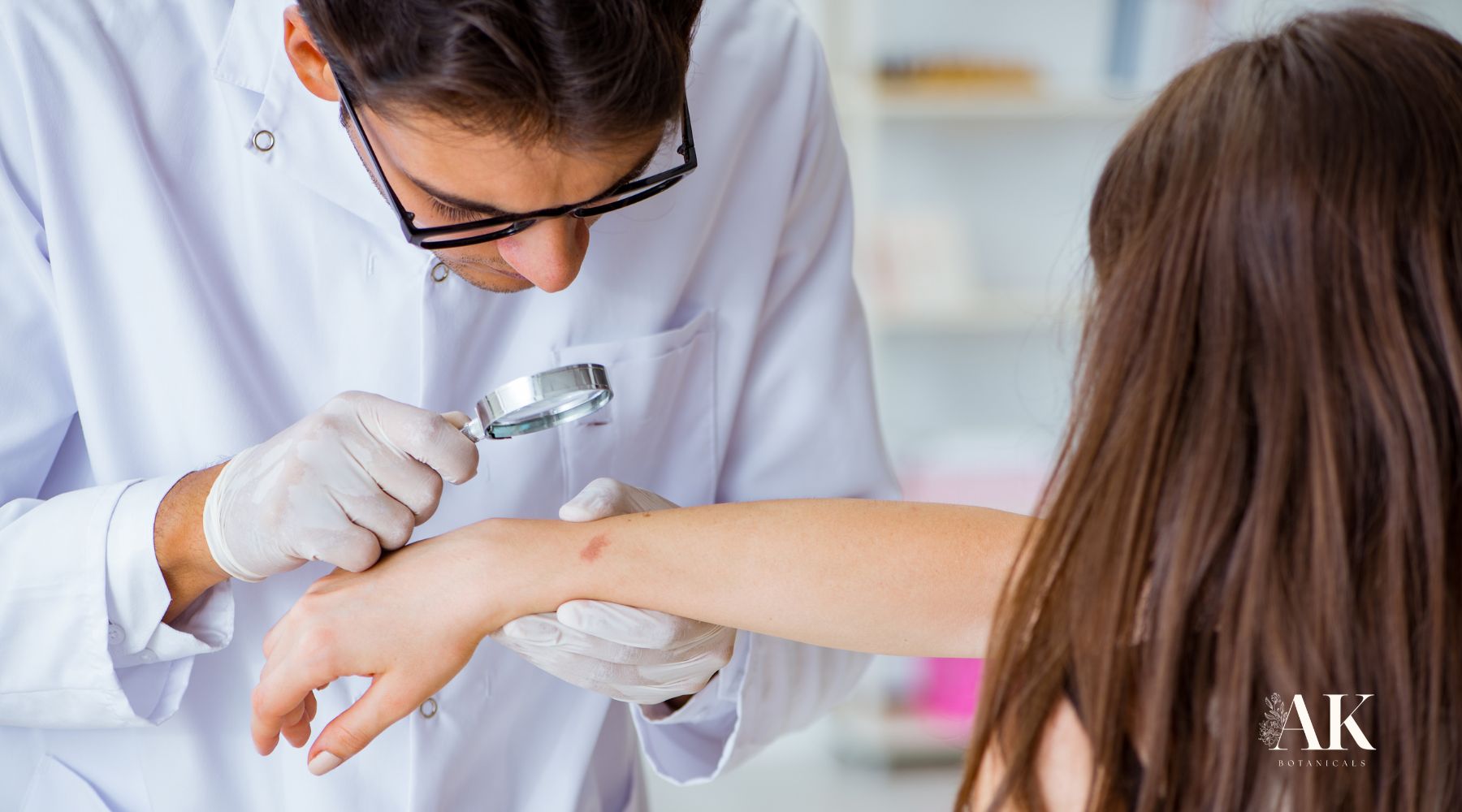
What Is the Best Natural Remedy for Actinic Keratosis?
Actinic keratosis (AK) is a common skin condition caused by years of sun exposure, affecting an estimated 58 million Americans. If you're dealing with it, you’re not alone.
While medical treatments are available, many people look for natural ways to care for their skin—whether to avoid harsh ingredients, embrace a more holistic lifestyle, or simply feel more in control of their health.
The right botanical ingredients can help nourish and protect your skin, supporting its natural resilience. That said, it's important to find a balance—natural remedies work best alongside professional care.
The Role of Botanical Skincare in Actinic Keratosis Treatment
Adding botanical ingredients to your skincare routine can make a big difference, especially if you have actinic keratosis. As skin ages, especially between 45 and 65, it becomes more fragile due to years of sun exposure. Using products with natural extracts, help keep your skin healthy while reducing irritation.
Plants like aloe vera, chamomile, and green tea have powerful antioxidants that fight oxidative stress—a major cause of skin damage. These ingredients can soothe inflammation, which is common in actinic keratosis. Regular use of botanical skincare can strengthen your skin’s barrier and reduce the impact of UV rays, helping with sun protection.
The efficacy of these ingredients has been demonstrated in lab studies. For instance, a 2020 study in Experimental Dermatology found that polyphenols in green tea reduced the formation of UV-induced precancerous cells by 40%. Similarly, research published in Molecular Carcinogenesis suggests that aloe vera’s compounds may help slow the progression of sun-damaged skin cells.
Consistency is key. Washing and moisturizing daily with natural products can help your skin stay strong. Beyond the physical effects, actinic keratosis can also affect how you feel about your skin.
A simple but effective routine can turn skincare into a self-care moment. Managing your skin health doesn’t have to be stressful—it can be part of your daily wellness practice. With the right products, you can take control of your skin’s health and keep it looking and feeling great.
Natural Ingredients That Support Skin Health
While there isn’t a single “best” natural remedy for actinic keratosis (AK), certain botanical ingredients have been studied for their beneficial effects on the skin:
-
Green tea extract: Rich in polyphenols like epigallocatechin gallate (EGCG), green tea helps protect against UV damage and reduce inflammation. A 2016 study published in Oxidative Medicine and Cellular Longevity found that EGCG can inhibit the growth of abnormal skin cells, potentially slowing the progression of AK.
-
Aloe vera: This plant is known for its soothing and hydrating properties. Research published in Phytomedicine shows that aloe vera gel can help improve skin repair and reduce inflammation, making it useful for individuals with AK.
-
Frankincense and myrrh essential oils: Traditionally used for skin rejuvenation, these oils contain compounds with anti-inflammatory and antimicrobial properties. Some studies suggest that frankincense oil may help promote healthy skin cell turnover.
-
Apple cider vinegar: Sometimes used for exfoliation due to its natural acidity, apple cider vinegar may help remove damaged skin cells. However, it should be applied with caution to avoid irritation, as excessive use can cause dryness and sensitivity.
While these natural ingredients can be beneficial, it’s important to remember that AK is a precancerous condition, and professional care should always be part of your approach.
The Healing Power of Kanuka Honey: A Natural Remedy for Skin Care Conditions
When it comes to treating skin care conditions like AKs (actinic keratosis), nature provides powerful solutions. One such remedy is kanuka honey, derived from the tree of the same name found in New Zealand. Known for its anti-inflammatory, antibacterial, and antioxidant properties, kanuka honey can play a vital role in promoting skin health.
Kanuka honey has been studied for its healing properties, making it a strong candidate for natural skin care routines. Researchers have examined its benefits, with studies published on platforms like Google Scholar, highlighting its efficacy in soothing skin conditions and accelerating the healing process.
How Kanuka Honey Helps with AKs and Other Skin Conditions
For those dealing with AKs, kanuka honey provides a gentle, natural solution to combat irritation and inflammation. Due to its potent antioxidants, it can support the skin’s healing process while helping to reduce redness and discomfort associated with sun-damaged skin.
According to Google Scholar, several studies have highlighted how honey, particularly kanuka honey, helps in treating skin conditions, from minor irritations to more serious concerns like AKs. Its natural compounds promote skin cell regeneration, reduce inflammation, and offer essential hydration. These properties make it a valuable addition to any holistic skincare regimen.
Medical and Holistic Approaches to Treating Actinic Conditions
Treating actinic keratosis works best when you combine medical treatments with natural care. Here you will find different options to address actinic keratosis and how they work together to give you the best results. By balancing both, you can create a plan that fits your needs and supports your skin’s health.
Combining Medical Treatments with Natural Remedies
Doctors often recommend medical treatments for actinic keratosis, including:
-
Cryotherapy (freezing the lesion off)
-
Topical creams like fluorouracil (5-FU) and imiquimod, which are FDA-approved and have been shown in clinical trials to clear up AK in up to 80% of cases.
-
Photodynamic therapy, which uses light to target damaged skin, with studies showing a 90% success rate in clearing lesions.
After medical treatments, taking care of your skin is just as important. Keeping up with a natural skincare routine protects your skin and helps it heal faster. Using antioxidant-rich products also lowers the chance of further sun damage and supports long-term skin health. Clinical studies show that combining botanical skincare with medical treatments improves overall efficacy and enhances the healing process.
What Is the Best Natural Remedy for Actinic Keratosis?
At AK Botanicals, we believe the best approach is a mix of medical support and natural remedies. Sun protection is also key. Wearing sunscreen daily (SPF 30 or higher) prevents further damage and reduces the risk of skin cancer. The Skin Cancer Foundation states that daily SPF use can lower the risk of developing squamous cell carcinoma (a potential progression of AK) by 40%.
Many people search for natural solutions, but the best strategy is using both modern medicine and nature’s healing power together. The cost of treatments varies, but investing in both medical and natural solutions can save time and improve long-term results.
Why Combining Natural Remedies with Medical Treatment Works Best
While kanuka honey and other natural remedies have great potential, they work best when used alongside medical treatments for AKs. Combining botanicals like kanuka honey with professional care ensures that you are providing the best possible care for your skin. From cryotherapy to topical treatments, professional approaches address the immediate concerns, while natural remedies support long-term skin health and regeneration.
AKti-Clear: A Powerful Solution for Actinic Keratosis (AKs)
AKti-Clear is a specialized product designed to manage AKs (actinic keratosis) and sun-damaged skin. Its advanced formula promotes skin healing by exfoliating the surface, reducing inflammation, and supporting healthy cell turnover. By incorporating AKti-Clear into your skin care routine, you can help reduce the appearance of AK lesions and prevent their progression.
While AKti-Clear works effectively on its own, exploring professional treatments like microneedling, peels, and fillers can enhance results. These treatments stimulate collagen production and improve absorption of AKti-Clear, boosting its effectiveness. Additionally, daily sun protection with SPF 30 or higher is essential to prevent further damage.
Finally, regular dermatology check-ups are crucial for detecting AKs early. Keeping all your appointments allows for early treatment of potential skin cancers, which is highly treatable in its early stages. With AKti-Clear, professional care, and proper sun protection, you can manage AKs and maintain healthier skin.
Creating a Personal Action Plan for Actinic Health
Taking care of your skin starts with a plan. Daily habits like wearing sunscreen, using soothing skincare, and seeing a dermatologist when needed make a big difference.
Show your skin the care it deserves and start your journey to healthier skin today. At AK Botanicals, we’re here to help you navigate that balance with products that blend nature’s power with science-backed skincare, so you can feel confident in your skin every day.




